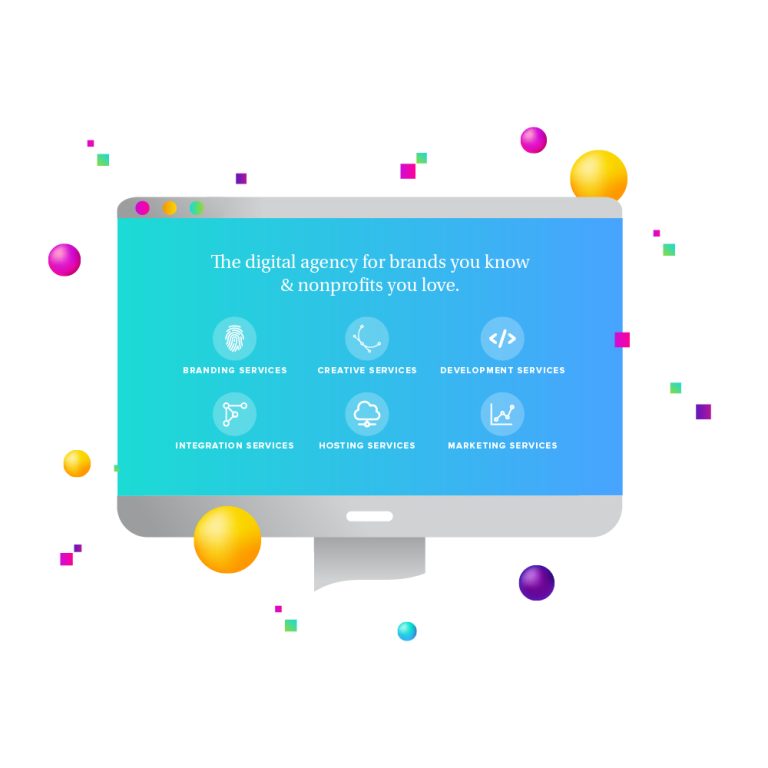
HubSpot vs Salesforce: An Overview
HubSpot and Salesforce are both prominent software companies known for their Customer Relationship Management (CRM) tools, among other business solutions. They provide platforms that help businesses manage their interactions with current and potential customers. In the debate of HubSpot vs. Salesforce, this article will give you a lot of information to help you make this important decision.
HubSpot
HubSpot is widely recognized for its inbound marketing approach. The company offers a suite of software solutions for inbound marketing, sales, and customer service. HubSpot’s tools are designed to attract visitors, convert leads, and delight customers. Their CRM platform is known for being user-friendly and is often favored by small to medium-sized businesses. It includes features like email marketing, social media tools, content management, lead generation, and analytics.
Salesforce
Salesforce is one of the world’s leading CRM providers and is often used by larger businesses and enterprises. It offers a comprehensive suite of products that cover various aspects of business operations, including sales, customer service, marketing automation, analytics, and application development. Salesforce is known for its high degree of customizability and extensive ecosystem of third-party applications available through its AppExchange.
Both platforms are highly regarded in their respective domains, with Salesforce being a more enterprise-focused solution offering extensive customization and a wide range of features, while HubSpot is often praised for its ease of use and strong focus on inbound marketing strategies.
HubSpot vs Salesforce: Let’s Get Specific
1. HubSpot vs Salesforce: Target Audience and Core Focus
HubSpot:
Target Audience: HubSpot is primarily aimed at small to medium-sized businesses. It is particularly popular among companies that are heavily focused on inbound marketing, content creation, and online lead generation.
Core Focus: The core focus of HubSpot is inbound marketing. This approach involves attracting customers through relevant and helpful content, using tools like SEO, social media, content marketing, and email marketing. HubSpot provides an integrated suite of tools that assist in creating and managing content, nurturing leads, and offering customer support. It’s designed to be an all-in-one marketing solution that is user-friendly, making it accessible even for those without a deep technical background.
Salesforce:
Target Audience: Salesforce targets a broader range, including medium to large enterprises and more complex organizations. It’s favored by businesses that require a comprehensive CRM solution with advanced features and high customizability.
Core Focus: Salesforce focuses on providing a robust CRM platform that covers all facets of customer relationship management, including sales, customer service, marketing automation, and analytics. Its capabilities extend beyond just marketing, offering extensive tools for sales management, customer service, business analytics, and application development. Salesforce is known for its ability to be highly customized to fit a wide variety of business processes and needs.
HubSpot is ideal for smaller businesses or those focused on inbound marketing and content-driven strategies, offering an easy-to-use platform with a comprehensive set of tools for attracting and nurturing leads. Salesforce, on the other hand, serves a more diverse and larger-scale business audience, providing a highly customizable and feature-rich CRM solution suitable for complex sales processes, customer service, and marketing automation at an enterprise level.
2. HubSpot vs Salesforce: Customization and Flexibility
HubSpot:
Customization: HubSpot allows for some level of customization, particularly in its marketing and content management tools. Users can customize templates, workflows, and reports to fit their needs.
Flexibility: As an all-in-one platform, HubSpot is designed to be user-friendly and is ideal for businesses that want a straightforward system that can be quickly implemented and managed. Its flexibility is more in terms of how different tools within the HubSpot ecosystem work together rather than deep technical customization.
Salesforce:
Customization: Salesforce is known for its high level of customization. It offers a powerful and flexible platform that can be tailored to a vast array of business processes. Users can create custom objects, fields, rules, and workflows to match their specific requirements.
Flexibility: The platform is highly flexible and can adapt to complex business structures and processes. However, this flexibility can also mean a steeper learning curve and potentially higher costs, as businesses may need to hire developers or consultants to manage the system.
Salesforce is often chosen by organizations that need a highly customizable CRM to handle complex business processes, whereas HubSpot is selected by those looking for an easy-to-use, integrated marketing platform with enough flexibility for standard customization.
3. HubSpot vs Salesforce: Pricing
HubSpot:
Free Tier: HubSpot offers a completely free version of its CRM, which includes basic features such as contact management, deal pipeline tracking, and task management. This can be very attractive for small businesses or startups.
Scalable Pricing: As businesses grow and need more advanced features, HubSpot provides scalable pricing tiers. Pricing increases as you add more advanced tools and functionalities, such as marketing automation, sales hubs, service hubs, and operations software.
Bundling: HubSpot also offers bundled packages that combine several hubs, which can be more cost-effective than purchasing them separately.
Transparency: HubSpot is known for transparent pricing with clear outlines of what each tier offers and its respective costs, which are available on their website.
Salesforce:
Per User Pricing: Salesforce primarily uses a per-user pricing model, which can quickly become expensive for larger teams. There is no free tier for their main CRM product, although they offer a free trial.
Multiple Editions: Salesforce provides several editions of its CRM, like Essentials, Professional, Enterprise, and Unlimited, each with increasing features and customization options. The price increases with each tier.
Additional Costs: Customizations, add-ons, and additional features can add to the base cost. Furthermore, because Salesforce can be complex, businesses might incur additional costs for administration, development, or consultation to tailor the platform to their needs.
Less Transparency: Salesforce’s pricing can be less transparent, with final costs often requiring a direct quote from the company, especially for higher-tier products or additional features.
When considering which CRM to choose, businesses should not only look at the sticker price but also consider the total cost of ownership, which includes implementation, customization, training, and maintenance costs over time.
4. HubSpot vs Salesforce: Integration and Ecosystem
HubSpot:
Integration Capabilities: HubSpot provides a range of integration options with other software applications. It is designed to integrate seamlessly with other tools in the HubSpot suite, such as Marketing Hub, Sales Hub, Service Hub, and CMS Hub, ensuring a unified platform for all business functions.
App Marketplace: HubSpot has its own App Marketplace where users can find a variety of integrations with third-party tools. The marketplace includes integrations for email, social media, customer support, finance, and more.
API Availability: HubSpot offers APIs for developers to build custom integrations. This is particularly useful for businesses that want to connect HubSpot with custom or niche systems.
Salesforce:
Integration Capabilities: Salesforce is known for its robust integration capabilities. It can integrate with a wide range of third-party applications and internal systems, which is essential for large organizations with complex tech stacks.
AppExchange: Salesforce’s AppExchange is one of the largest business app ecosystems available. It features thousands of third-party enterprise and small business applications and consulting partners, covering a vast array of functionalities and industries.
API Availability: Salesforce provides a comprehensive set of APIs that allow for deep integrations. This enables businesses to connect Salesforce with practically any other system, although it may require more technical expertise than HubSpot.
Custom Development: Salesforce allows for extensive custom development within its platform through Salesforce’s proprietary programming languages, Apex and Visualforce, and the more recent addition of Lightning Web Components.
Comparison:
Breadth and Depth: Salesforce’s ecosystem is larger and more extensive, which can be particularly beneficial for large enterprises that require a wide variety of integrations and custom solutions.
Simplicity vs. Complexity: HubSpot offers simpler, more straightforward integration options that are suitable for businesses that do not require the depth and complexity of Salesforce.
Customization: Salesforce offers more in-depth customization and integration capabilities, which can be necessary for complex, bespoke enterprise environments.
Ease of Use: HubSpot is generally easier for the average user to integrate and manage without the need for specialized staff.
HubSpot is often the choice for businesses seeking easy integration with a suite of tools for inbound marketing, sales, and service, while Salesforce is selected by organizations that require a deep level of integration and customization capabilities to suit complex business processes.
5. HubSpot vs Salesforce: Data Analytics and Reporting
HubSpot:
Analytics: HubSpot provides comprehensive analytics that are integrated across its marketing, sales, and service hubs. This integration gives users a holistic view of their customer journey and marketing effectiveness.
Reporting: The platform offers a range of pre-built and customizable reports that are user-friendly and visually appealing. Users can easily create dashboards to track various metrics related to website performance, lead generation, sales activity, and customer service interactions.
Ease of Use: HubSpot is designed to make data analysis and report generation accessible to users without extensive technical expertise. The drag-and-drop interface and straightforward filtering options simplify the process.
Insights for Smaller Teams: While HubSpot’s analytics are robust, they are particularly well-suited for smaller to medium-sized businesses that may not require highly granular data analysis.
Salesforce:
Analytics: Salesforce’s analytics capabilities are extremely powerful, especially with the addition of Salesforce Einstein, an AI layer that provides advanced data insights, predictions, and recommendations.
Reporting: Salesforce offers deep customization options for reports and dashboards. Users can create complex reports that analyze various data points across different business functions.
Complexity and Customization: The platform’s reporting and analytics are more complex and can require specialized knowledge to set up and manage, particularly for custom reports.
Enterprise-Level Insights: Salesforce is ideal for larger organizations that need to handle large volumes of data and require intricate, detailed reporting. The level of detail and customization available is suitable for businesses with complex analytics needs.
Comparison:
User-Friendliness vs. Depth: HubSpot focuses on user-friendly analytics and reporting, suitable for everyday business users who need to make quick, data-driven decisions. Salesforce, with its more complex and customizable reporting, caters to data analysts and larger enterprises that require in-depth business intelligence.
Integrated vs. Advanced Analytics: HubSpot’s analytics are more integrated out-of-the-box, which can be more convenient for users looking for a unified view of their data across various platforms. Salesforce’s analytics are highly advanced and can be customized to a great extent, which can be more advantageous for businesses with specific, complex analytical needs.
AI and Machine Learning: Salesforce has a clear edge in predictive analytics and advanced AI capabilities with Einstein, which can be a significant advantage for businesses looking to leverage data for predictive modeling and sophisticated data analysis.
HubSpot may be sufficient for small to mid-sized businesses seeking straightforward analytics and reporting tools that are easy to use. In contrast, Salesforce is typically the choice for larger organizations or those with more complex data analysis needs, requiring robust, customizable, and advanced analytical capabilities.
New Target’s extensive experience with both HubSpot and Salesforce positions us uniquely to assist businesses in navigating the complexities of CRM selection and implementation. Whether your company is leaning towards the streamlined, user-friendly approach of HubSpot services or requires the robust, highly customizable environment of Salesforce for Business and Salesforce Integration, our expertise is your asset. We understand the intricacies of both platforms and can guide you in optimizing your CRM to serve your specific business needs.



